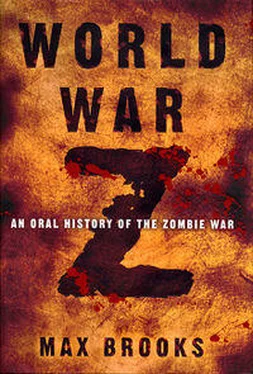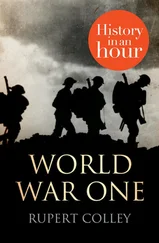From that day on, we ceased all contact with the outside world. We headed for the arctic ice, the farthest, darkest, most desolate void we could find. We tried to continue with our day-to-day life: maintaining the boat; growing food; schooling, raising, and comforting our children as best we could. With the captain’s spirit gone, so went the spirit of the Admiral Zheng’s crew. I was the only one who ever saw him during those days. I delivered his meals, collected his laundry, briefed him daily on the condition of the boat, then relayed his orders to the rest of the crew. It was routine, day in, day out.
Our monotony was only broken one day when sonar detected the approaching signature of another 95-class attack sub. We went to battle stations, and for the first time we saw Captain Chen leave his cabin. He took his place in the attack center, ordered a firing solution plotted, and tubes one and two loaded. Sonar reported that the enemy sub had not responded in kind. Captain Chen saw this as our advantage. There was no questioning in his mind this time. This enemy would die before it fired. Just before he gave the order, we detected a signal on the “gertrude,” the American term for an underwater telephone. It was Commander Chen, the captain’s son, proclaiming peaceful intentions and requesting that we stand down from GQ. He told us about the Three Gorges Dam, the source of all the “natural disaster” rumors we’d heard about in Manihi. He explained that our battle with the other 95 had been part of a civil war that the dam’s destruction had sparked. The sub that attacked us had been part of the loyalist forces. Commander Chen had sided with the rebels. His mission was to find us and escort us home. I thought the cheer was going to carry us right to the surface. As we broke through the ice and the two crews ran to each other under the arctic twilight, I thought, finally, we can go home, we can reclaim our country and drive out the living dead. Finally, it’s over.
But it wasn’t.
There was still one last duty to perform. The Politburo, those hated old men who had caused so much misery already, were still holed up in their leadership bunker in Xilinhot, still controlling at least half of our country’s dwindling ground forces. They would never surrender, everyone knew this; they would keep their mad hold on power, squandering what was left of our military. If the civil war dragged on any longer, the only beings left in China would be the living dead.
And you decided to end the fighting.
We were the only ones who could. Our land-based silos were overrun, our air force was grounded, our two other missile boats had been caught still tied to the piers, waiting for orders like good sailors as the dead swarmed through their hatches. Commander Chen informed us that we were the only nuclear asset left in the rebellion’s arsenal. Every second we delayed wasted a hundred more lives, a hundred more bullets that could be thrown against the undead.
So you fired on your homeland, in order to save it.
One last burden to shoulder. The captain must have noticed me shaking the moment before we launched. “My order,” he declared, “my responsibility.” The missile carried a single, massive, multi-megaton warhead. It was a prototype warhead, designed to penetrate the hardened surface of your NORAD facility in Cheyenne Mountain, Colorado. Ironically, the Politburo’s bunker had been designed to emulate Cheyenne Mountain in almost every detail. As we prepared to get under way, Commander Chen informed us that Xilinhot had taken a direct hit. As we slid beneath the surface, we heard that the loyalist forces had surrendered and reunified with the rebels to fight the real enemy.
Did you know they had begun instituting their own version of the South African Plan?
We heard the day we emerged from under the ice pack. That morning I came on watch and found Captain Chen already in the attack center. He was in his command chair, a cup of tea next to his hand. He looked so tired, silently watching the crew around him, smiling as a father smiles at the happiness of his children. I noticed his tea had grown cold and asked if he would like another cup. He looked up at me, still smiling, and shook his head slowly. “Very good, sir,” I said, and prepared to resume my station. He reached out and took my hand, looked up into, but did not recognize, my face. His whisper was so soft I could barely hear it.
What?
“Nice boy, Zhi Xiao, such a good boy.” He was still holding my hand when he closed his eyes forever.
[Clearwater Memorial is the newest hospital to be constructed in Australia and the largest one built since the end of the war. Terry Knox’s room is on the seventeenth floor, the “Presidential Suite.” His luxurious surroundings and expensive, almost unobtainable medication are the least his government can do for the first and, to date, only Australian commander of the International Space Station. In his words, “Not bad for the son of an Andamooka opal miner.”
His withered body seems to liven during our conversation. His face regains some of its color.]
I wish some of the stories they tell about us were true. Makes us sound all the more heroic. [Smiles.] Truth is, we weren’t “stranded,” not in Terms of being suddenly or unexpectedly trapped up there. Nobody had a better view of what was happening than us. No one was surprised when the replacement crew from Baikonur failed to launch, or when Houston ordered us to pile into the X-38 for evacuation. I wish I could say that we violated orders or physically fought with one another over who should stay. What really happened was much more mundane and reasonable. I ordered the scientific team, and any other nonessential personnel, back to Earth, then gave the rest of the crew the choice to remain behind. With the X-38 reentry “lifeboat” gone, we would be technically stranded, but when you think of what was at stake then, I can’t imagine any of us wanting to leave.
The ISS is one of the greatest marvels of human engineering. We’re talking about an orbital platform so large it could be seen from Earth with the naked eye. It’d taken sixteen countries over ten years, a couple hundred space walks, and more money than anyone without job security would admit to finally complete her. What would it take to build another one, if another one could ever be built ?
Even more important than the station was the incalculable, and equally irreplaceable, value of our planet’s satellite network. Back then there were over three thousand in orbit, and humanity depended on them for everything from communications to navigation, from surveillance to something even as mundane yet vital as regular and reliable weather prediction. This network was as important to the modern world as roads had been in ancient times, or rail lines during the industrial age. What would happen to humanity if these all-important links just started dropping out of the sky?
Our plan was never to save them all. That was unrealistic and unnecessary. All we had to do was concentrate on the systems most vital to the war effort, just a few dozen birds that had to remain aloft. That alone was worth the risk of staying.
Were you ever promised a rescue?
No, and we didn’t expect it. The issue wasn’t how we were going to get back to Earth, it was how we could manage to stay alive up there. Even with all our tanked 02 and emergency perchlorate candles,” even with our water recycling system operating at peak capacity, we only had enough food for roughly twenty-seven months, and that was including the test animals in the lab modules. None of them were being used to test any kind of vaccines so their flesh was still edible. I can still hear their little shrieks, still see the spots of blood floating in micro gravity. Even up there, you couldn’t escape the blood. I tried to be scientific about it, calculating the nutritional value of every floating red globule I sucked out of the air. I kept insisting that it was all for the good of the mission and not my own ravenous hunger.
Читать дальше












